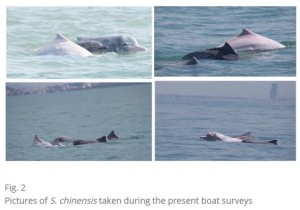What is the Marine Biological Association?
 The Marine Biological Association (MBA) is a professional body for marine scientists with some 1,500 members world-wide. Since 1884 the MBA has been promoting marine scientific excellence and representing the marine biological community.
The Marine Biological Association (MBA) is a professional body for marine scientists with some 1,500 members world-wide. Since 1884 the MBA has been promoting marine scientific excellence and representing the marine biological community.
The MBA has a laboratory in Plymouth and has established itself as a leading marine biological research organization, contributing to the work of several Nobel Laureates and over 170 Fellows of the Royal Society.
The MBA also runs internationally recognized education and outreach programmes, provides evidence to support policy and publishes the internationally focused magazine ‘The Marine Biologist’.
In 2013, the MBA was awarded a Royal Charter in recognition of its long and eminent history and its status within the field of marine biology.
Tell us about Marine Biodiversity Records
With numerous international collaborations and members in 44 countries, the MBA sees the promotion and dissemination of excellent research as part of its core remit to support the global marine biological community.
The publication of high quality international journals is therefore a key activity. One such journal, Marine Biodiversity Records (MBR), is a peer-reviewed, online publication with a focus on the rapidly changing marine and coastal environment.
The journal publishes original research articles which record and review behavioral and geographical changes in marine organisms, including effects of the introduction of novel or alien species to marine ecosystems, and new records of species in previously undocumented areas.
As noted by the Editor-in-Chief Dr Nova Mieszkowska “Detecting, tracking and forecasting species responses to our changing environment and anthropogenic pressures is a global, interdisciplinary endeavour “. This information is vital for the scientific community as well as those with a responsibility for assessing and managing the marine environment.
Why Open Access?

The MBA is also especially pleased to be launching MBR as its very first full Open Access journal. MBR was first published as a subscription journal by Cambridge University Press from 2008, as part of a major investment by the Marine Biological Association of the United Kingdom and Cambridge University Press to improve dissemination of good science in the field.
There has however been significant discussion recently both in the wider scientific community and amongst end-users on improving access to scientific data and information.
This is especially important, where the information may be required to underpin policy and management decisions in addition to contributing to our general scientific understanding of the marine environment.
It was decided therefore that from January 2016, MBR would be published by BioMed Central, a world-leader in open-access publishing. With the journal now being launched with its first fully open-access content, the MBA is excited about enhancing impact of MBR whilst continuing to provide world-leading research and advancing our understanding of global marine biodiversity.
You can find all of our launch articles, below, and be sure to check out Marine Biodiversity Records in the coming weeks as more Marine Records and original research is published!
Alexander Mulhern
Latest posts by Alexander Mulhern (see all)
- Where’s the Whale? Quiz - 15th February 2019
- What webs we weave: spiders influence on food webs above and below ground - 7th March 2018
- World Oceans Day 2017 – State of the Seven Seas - 8th June 2017
Comments